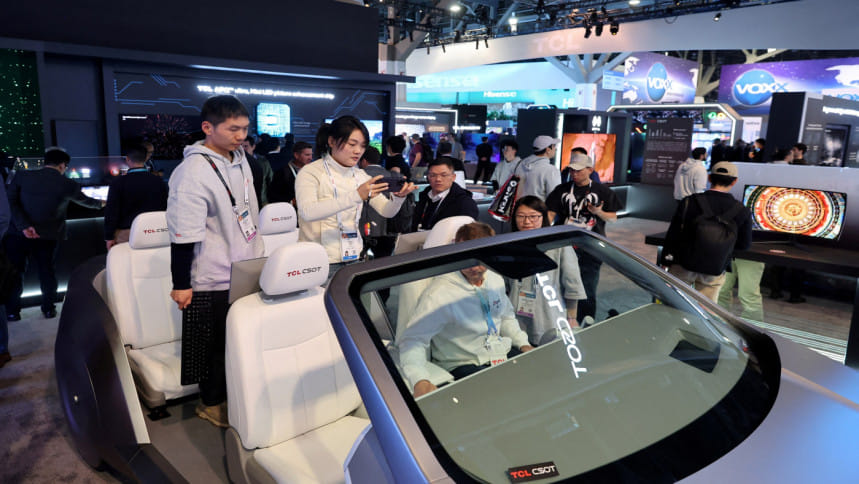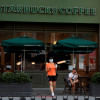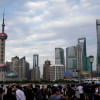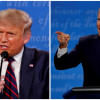Business trumps politics for Chinese companies at CES

Xiaoyu Fan smiled as she looked around a bustling China Pavilion at the Consumer Electronics Show Wednesday as gadgets like bladeless fans were displayed and deals were being made.
Hundreds of Chinese companies were at the annual CES gadget extravaganza, shrugging off US-China political trade tensions and focusing on taking care of business.
"I believe all the people in each country are very good, the civilization of each country is very nice, very friendly," said Fan, who was with the Zhejiang Crossbow Brand Electric Appliance Company from Wuyi, China.
"We don't care about the governments; that's not our business" she added, a necklace around her neck spelling out the word "peace."
About 500 of the 3,500 or so exhibitors at CES are from China, more than last year but still not at pre-Covid numbers, according to the Consumer Technology Association that runs CES.
"The Chinese are back," association president Gary Shapiro said in the lead-up to the Las Vegas show that ends on Friday.
Chinese titans like TCL and Hisense dazzled CES goers with stunning televisions while less well-known companies showed off robots, drones, electronic bikes, charging cables and much more.
TCL's partnership with the US National Football League was the main theme at a CES press event, complete with appearances by sports legends.
"They certainly seemed like a red-blooded American company that drinks beer and watches football," said Techsponential analyst Avi Greengart.
Chinese business leaders at CES included Appotronics chief executive Li Yi, whose company specializes in laser display technology used by major companies including car makers BMW and BYD.
To Li, it seemed tension between the United States and China on the trade front was beginning to stabilize, and that the issue was more a battle over high technology than the type of consumer tech packing CES.
"For Chinese brands, being in the US is tough in today's climate," Li acknowledged to AFP.
"But there is also an emerging opportunity; components technology companies are starting to see this as a chance to emerge."
Chinese companies at CES played up innovation, wanting their country to be seen as a technology leader rather than just a place where things can be made cheaply.
"People typically think we are a manufacturing powerhouse, and then people think we are copycats," Li said of attitudes towards Chinese entrepreneurs.
"There are still probably people doing that, but more companies like us are trying to be innovative; we really don't want to reinvent the wheel and sell it at a lower price."
Futurum Group research director Olivier Blanchard saw advanced computer chips used for artificial intelligence as the heart of trade friction between the United States and China.
That technology is a far cry from what is used in the cornucopia of AI-infused gadgets at CES from pet trackers to smart beds, baby bottles and electric bicycles.
"The whole US versus China thing takes a very distant backseat to the dialogue that happens at CES," Blanchard said.
"Whether you're from China or from anywhere else, if you have a good product you're gonna find the market."
Despite political tensions between the United States and China in regard to AI, national security and Taiwan, it would be unwise to decouple the two economies since they benefit so much from each other, according to Blanchard.
"I love the fact that they keep coming here every year, whether they're from China or anywhere else, and they keep trying," Blanchard said.
"It's this weird churning layer of startups that are all competing to become the next big thing."

 For all latest news, follow The Daily Star's Google News channel.
For all latest news, follow The Daily Star's Google News channel. 








Comments